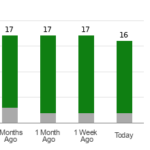
In the wake of a 2016 rape case in Pennsylvania, law enforcement’s utilization of Alphabet IncGOOG GOOGL search data in criminal investigations has come under intense scrutiny from civil liberties advocates. This has triggered profound concerns about privacy rights, with advocates arguing that the use of keyword search warrants by police poses a significant threat to innocent individuals’ privacy.
The investigation in Pennsylvania, which eventually led to the arrest and conviction of a corrections officer, involved police obtaining information from Google through a search warrant. Google’s provision of the IP address of a user who had searched for the victim’s address was pivotal in this case, creating a contentious precedent for the broader implications of such data utilization in criminal investigations.
The Electronic Frontier Foundation, the National Association of Criminal Defense Lawyers, and its Pennsylvania chapter have vocally opposed this investigative technique, expressing deep apprehension about the indiscriminate nature of keyword search warrants, which they believe amount to digital dragnets, allowing government authorities to delve into the most private of information. Michael Price, Litigation Director at NACDL’s Fourth Amendment Center, has vehemently called for the Pennsylvania Supreme Court to declare these warrants unconstitutional in the interest of safeguarding citizens’ rights.
Legal battles in various jurisdictions have amplified the spotlight on these issues, especially following significant Supreme Court decisions such as those related to abortion. Privacy advocates are troubled by the potential misuse of keyword search warrants and geofence warrants, which could result in the prosecution of individuals in states where certain activities, such as abortion, are illegal.
In a separate milestone, the Colorado Supreme Court’s ruling on the use of evidence obtained from a keyword search warrant in a murder case has added to the growing concerns. However, the court’s ruling, while specific to that case, has provided some hope for advocates, suggesting that there is room for reevaluation and potential legal reforms in Pennsylvania, as Andrew Crocker, Surveillance Litigation Director at EFF, pointed out.
Notably, in response to heightened awareness and scrutiny, Google has proactively ceased its provision of information in response to geofence warrants. This policy shift has not only drawn attention to the broader concerns over keyword search warrants but has also intensified the pressing need for judicial review regarding their constitutionality, especially as law enforcement agencies seek to adopt new investigative tools and tactics.
The implications of these developments are far-reaching, reflecting the complex interplay between technology, privacy rights, and law enforcement practices. As the legal landscape evolves, these contentious issues are poised to shape judicial interpretations and corporate policies, raising deep ethical questions about the balance between upholding public safety and protecting individual privacy.





